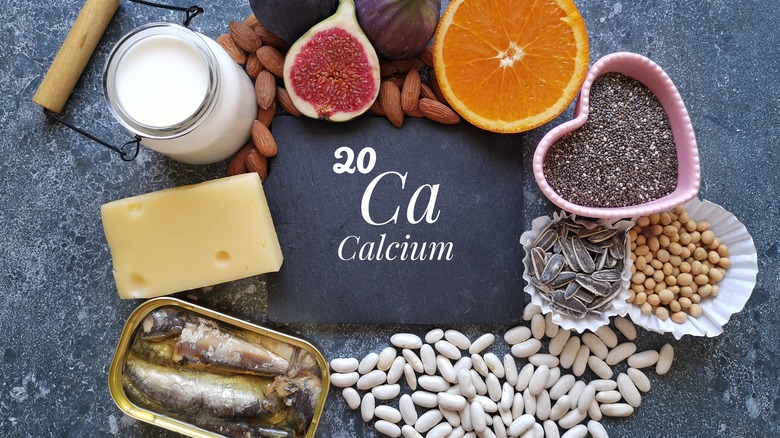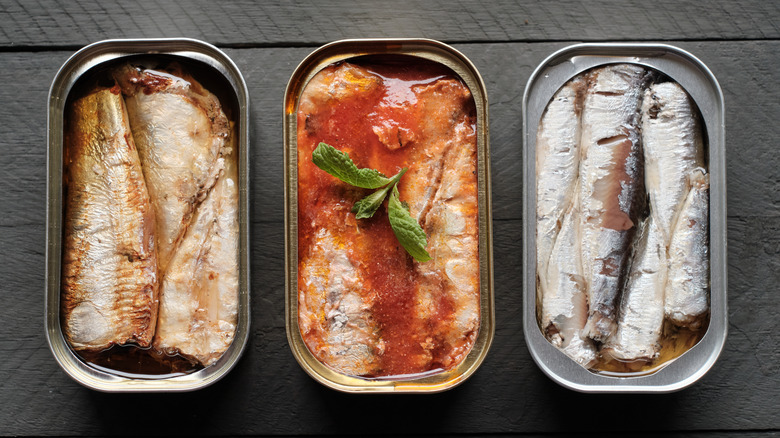This Unexpected Food Is A Good Source Of Calcium
Along with vitamin D, calcium is one of the most important nutrients for bone health. This mineral also supports muscle and nerve function, hormone production, and cardiovascular health. What's more, it may protect against certain types of cancer and preeclampsia, a condition that causes high blood pressure during pregnancy, reports the National Institutes of Health (NIH). About 98% of total body calcium is stored in the bones, but its levels tend to decrease with age. Vegans and postmenopausal women are more likely to become deficient in this nutrient.
Calcium deficiency can affect bone mineral density, leading to fractures, osteoporosis, and other health problems. In some cases, it may cause damage to your brain, nerves, kidneys, heart, and eyes. A balanced diet won't necessarily prevent these issues. For example, many otherwise healthy foods contain phytates, oxalates, and other compounds that can interfere with your body's ability to absorb calcium, according to clinical evidence published in the Annals of the New York Academy of Sciences. Additionally, we only absorb about 30% of the calcium in dairy, 20% of the calcium in nuts, and 50% of the calcium in plant foods, notes Harvard T.H. Chan School of Public Health.
You might think that milk is the best source of calcium, but that's not necessarily the case. There are better ways to get more of this mineral in your diet and prevent deficiencies.
This delicious food has more calcium than a cup of milk
Many of us believe we need to drink milk for healthy bones. As it turns out, milk consumption can increase the risk of fractures and overall mortality, suggests a 2014 study published in the British Medical Journal. Lactose and D-galactose, two natural sugars in dairy, promote inflammation and oxidative stress, which may lead to heart disease and cancer. What's more, some foods are higher in calcium than milk and contain no lactose, phytates, or oxalates. A can of sardines, for instance, boasts 27% of the recommended daily calcium intake, reports MyFoodData. A cup of milk, by comparison, offers 21% of the daily recommended amount of calcium.
Canned sardines are also rich in vitamin D, a nutrient that increases calcium and phosphorus absorption, according to a 2008 review presented in Current Rheumatology Reports. Without this fat-soluble vitamin, your body would only absorb 10-15% of the calcium consumed. A can of sardines provides 22% of the recommended vitamin D intake, whereas milk contains just 16% per cup. Moreover, this fish is lower in saturated fat and higher in protein, potassium, iron, magnesium, selenium, and omega-3s than milk, notes MyFoodData.
If you're pregnant, sardines can help you meet your calcium requirements. This fatty fish is significantly lower in mercury than bigeye tuna, king mackerel, halibut, carp, and tilefish, says the U.S. Food and Drug Administration. In fact, you can have up to three servings of sardines per week without risking your health.


